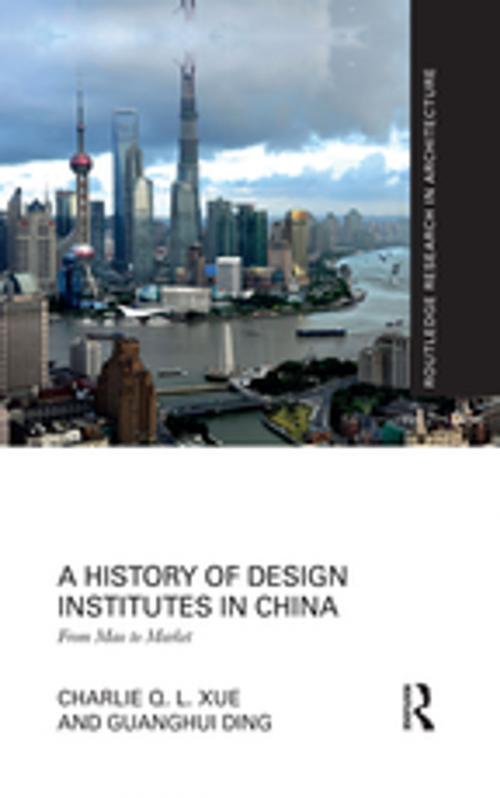A History of Design Institutes in China
From Mao to Market
Nonfiction, Art & Architecture, Architecture, History| Author: | Charlie Q. L. Xue, Guanghui Ding | ISBN: | 9781351356787 |
| Publisher: | Taylor and Francis | Publication: | July 11, 2018 |
| Imprint: | Routledge | Language: | English |
| Author: | Charlie Q. L. Xue, Guanghui Ding |
| ISBN: | 9781351356787 |
| Publisher: | Taylor and Francis |
| Publication: | July 11, 2018 |
| Imprint: | Routledge |
| Language: | English |
A History of Design Institutes in China examines the intricate relationship between design institutes, the state, and, in later periods, the market economy through a carefully situated discussion of significant theoretical and historical issues including socialist utopia, collective and individual design, structural transformation, and architectural exportation, amongst others. It shows how, over the past six decades, China’s design institutes have served the state’s strategy for socialist construction and urbanisation to create socioeconomic and cultural value. Through first-hand research, authors Xue and Ding reveal how the tensions between pragmatism, creativity, collaboration, and resistance have played a crucial role in defining architectural production.
Appealing to academics, researchers, and graduate students, this book provides a much-needed contribution to the discourse on architectural history, building practices, and policymaking in contemporary China.
A History of Design Institutes in China examines the intricate relationship between design institutes, the state, and, in later periods, the market economy through a carefully situated discussion of significant theoretical and historical issues including socialist utopia, collective and individual design, structural transformation, and architectural exportation, amongst others. It shows how, over the past six decades, China’s design institutes have served the state’s strategy for socialist construction and urbanisation to create socioeconomic and cultural value. Through first-hand research, authors Xue and Ding reveal how the tensions between pragmatism, creativity, collaboration, and resistance have played a crucial role in defining architectural production.
Appealing to academics, researchers, and graduate students, this book provides a much-needed contribution to the discourse on architectural history, building practices, and policymaking in contemporary China.















